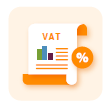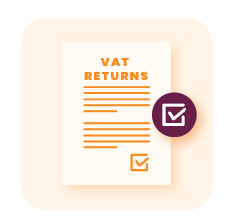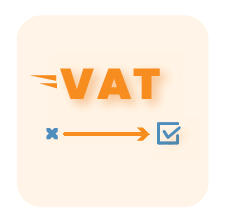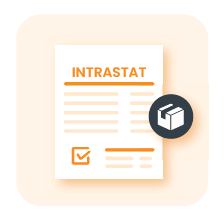E-Commerce & B2C Services in Belgium
The “VAT e-commerce rules,” otherwise known as Council Directive (EU) 2017/2455, amends Article 33 of the EU VAT Directive. This alteration will be integrated into Article 15 of the VAT Code starting July 1, 2021, superseding the existing distance sales system.
From this date onwards, the VAT Code’s definition of distance sales includes goods shipped from regions outside the EU to an unregistered taxable person or VAT-exempt entity, with the exception of new means of transport.
Read more about E-Commerce & B2C services in Belgium in our comprehensive guide.
Selling in Belgium?
Business to Consumer (“B2C”) Digital and E-Commerce Supplies
In Belgium, businesses registered for the One Stop Shop must maintain detailed records of transactions and submit a special VAT return electronically to the Belgian tax authority concerning these transactions.
It is mandatory to preserve records related to One Stop Shop transactions for 10 years from the end of the year in which the transaction was performed and to make them available electronically upon request by the competent authority.
For inbound consumer supplies of goods and TBE services, there are specific place of supply rules in place. The aim of these rules is to apply the destination principle, which means that these supplies are taxed at the place where they are consumed.
Effective from July 1, 2021, a unified EU program known as the “One Stop Shop” (OSS) was put into operation. Aimed at simplifying the registration and reporting protocols for overseas e-commerce goods and service providers, the scheme was constructed based on Chapter 6 of Title XII of the EU VAT Directive. This directive was revised by two Council Directives – (EU) 2017/2455 and (EU) 2019/1995, commonly known as the “VAT e-commerce rules.”
The OSS is a voluntary measure of simplification that allows qualifying taxable entities, regardless of their location inside or outside the EU, to evade the necessity of VAT registration in each Member State where they engage in cross-border Business-to-Consumer (B2C) transactions. The OSS generally applies to the following types of deals:
- The “non-Union One Stop Shop” scheme encapsulates the cross-border B2C services rendered by sellers not physically present within the European Union.
- The “Union One Stop Shop” scheme incorporates B2C distance sales of goods and services offered by taxable individuals who reside within the European Union (EU) but not in the same Member State as the consumer.
- The “Import One Stop Shop” (IOSS) scheme applies to distance sales of goods imported from regions outside the European Union (EU), given the value of the goods does not surpass 150 euros.
For the Union One Stop Shop scheme, a business established within the EU must register for the program in its home Member State, typically the location of its principal business activities or headquarters. If a non-EU business maintains one or more permanent establishments within the EU, it can register for this scheme in any Member State where it has a permanent establishment. Conversely, if a non-EU business lacks any fixed establishments within the EU, it has the liberty to register for the scheme in any Member State of its preference.
In the case where a non-EU business appoints an intermediary based in the EU to carry out distance sales on its behalf from outside the intermediary’s Member State, the non-EU business must register for the Union One Stop Shop scheme in the Member State where the intermediary is established.
A business can register for the Import One Stop Shop (IOSS) scheme for distance sales of goods imported from outside the European Union (EU) if it meets certain conditions.
These conditions include the following:
- The business is established within an EU Member State.
- The business is represented by an intermediary that is based in an EU Member State.
- The business is established in a country outside the EU that has concluded a mutual assistance agreement with the EU that is similar in scope to the intra-EU mutual assistance agreement, and the business carries out distance sales from that country.
Furthermore, eligible imports are exempt from import VAT. If a taxable person is registered for the One Stop Shop, they are required to submit electronic VAT returns on a quarterly basis to their Member State of identification. However, if the business is registered for the Import One Stop Shop, returns must be filed on a monthly basis.
Download the Belgian VAT Guide
New E-commerce rules in the EU
The “VAT e-commerce rules,” otherwise known as Council Directive (EU) 2017/2455, amends Article 33 of the EU VAT Directive. This alteration will be integrated into Article 15 of the VAT Code starting July 1, 2021, superseding the existing distance sales system.
From this date onwards, the VAT Code’s definition of distance sales includes goods shipped from regions outside the EU to an unregistered taxable person or VAT-exempt entity, with the exception of new means of transport.
The VAT Code differentiates between two categories of intra-Community distance sales: those dispatched from a distinct EU Member State, and those that are low-value items imported from third territories or countries.
According to Article 15 of the VAT Code, the place of supply for low-value items imported directly into the final destination Member State is that state, as long as VAT is declared under the One Stop Shop scheme.
For merchandise imported from outside the EU, where the transport terminates in another Member State, the point of supply is where the dispatch or transport to the customer concludes.
The VAT Code permits a de minimis exception for intra-Community distance sales, providing the supplier operates in one EU Member State without a permanent establishment elsewhere, and the goods are delivered to a different Member State. The supplier conducts business in only one EU Member State and has no permanent establishment outside of that state.
The goods are delivered to a different Member State.
The total value of distance sales to that other Member State, plus B2C TBE services, does not exceed the E-commerce Distance Sales Threshold of 10,000 euros, exclusive of VAT.
The de minimis exception does not apply to distance sales of goods imported from outside the EU. Therefore, if a supplier chooses to make the election to have their distance sales taxed in the Member State of destination under the default place of supply rule for distance sales, this choice will remain effective for a minimum of two consecutive calendar years.
Last Updated: 20/11/2023
Disclaimer
The information provided by Global VAT Compliance B.V. on this webpage is intended for general informational purposes only. Global VAT Compliance B.V. is not responsible for the accuracy of the information on these pages, and cannot be held liable for claims or losses deriving from the use of this information. If you wish to receive VAT related information please contact our experts at support@gvc.tax








